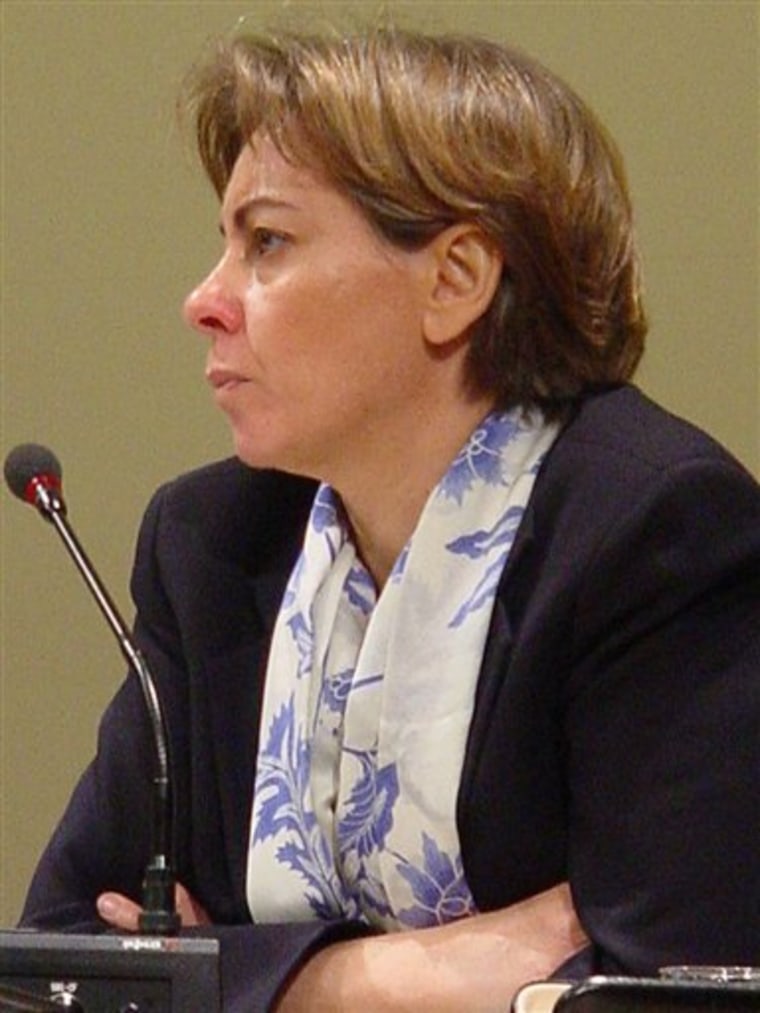Mystery surrounds Shaha Riza's personal life, by her design, yet two things are beyond doubt. She's smart, exceptionally so. And angry.
"Very angry," Paul Wolfowitz said of her recently. Wolfowitz lost his job as World Bank president Thursday over an ethical entanglement arising from his yearslong relationship with the former bank employee.
Riza, an Oxford-educated Arab Muslim feminist in her early 50s, has worked for years for democratic change in the Middle East and for sexual equality both in repressive societies and within the bank. She's done so most of that time without drawing enormous attention to herself.
"I simply do not know how to blow my own trumpet," she says.
Yet, in statements to World Bank officials, she came out fighting against the "vicious public attacks on me" that flowed from her relationship with hard-line conservative Wolfowitz, a bond that has been as notable for its quiet unfolding in gossipy Washington as for its longevity.
Riza began working for the bank eight years before Wolfowitz took over as president in June 2005. She was moved to the State Department that fall to avoid a conflict of interest but stayed on the bank's payroll. The bank's ethics panel concluded she subsequently received salary increases at Wolfowitz's direction that were higher than allowed under bank rules.
Riza bristled at being forced to leave the bank in 2005, arguing that as senior communications officer for the Middle East and North Africa office, she did not report to Wolfowitz in any capacity and no bank regulations prohibited her continued employment. "I felt under attack by a powerful group that had no right to make assumptions," she said in a statement to a special panel investigating Wolfowitz.
And she noted the "irony of my working to ensure women's participation and rights through the work of the World Bank and to be then stripped of my own rights by this same institution."
Wolfowitz went so far as to suggest that the bank's ethics committee members put the onus on him to arrange her outside employment because they were afraid to cross her.
They "did not want to deal with a very angry Ms. Riza," he wrote in a biting assessment of the panel's actions. "It would only be human nature for them to want to steer clear of her."
He hinted, too, that she was none too happy with him. He quoting her as telling the panel that he should have stood up for her rather than accepted an arrangement that moved her out of her job.
"He became them — you — the bank," she told the panel, "and I had to fend for myself in the same way I'm now fending for myself."
In her bank and academic work, Riza has promoted the link between freedom and feminism, reasoning that the fall of dictators in male-dominated societies in the Arab world and elsewhere would give rise to equality for women.
In that spirit, she organized a conference three years ago of Middle Eastern and North African democracy advocates that declared dictatorship a "crime against humanity," and she went to Iraq a year earlier to try to draw more women into the post-Saddam government.
The feminist Muslim and the Jewish conservative formed an intellectual connection on the advancement of democracy and a personal one that flowered this decade, years after they had met while both were connected to the National Endowment for Democracy in the early 1990s.
Riza speaks Arabic, French, Italian, Turkish and English, and she majored in international relations at the London School of Economics and in social studies at Oxford. She has a grown son.
After about a year at the State Department, Riza became a board member of the Foundation for the Future, a pro-democracy group finances in part by State. Since leaving the bank, her salaries — still covered by the institution — have risen to over $193,000 from close to $133,000.
